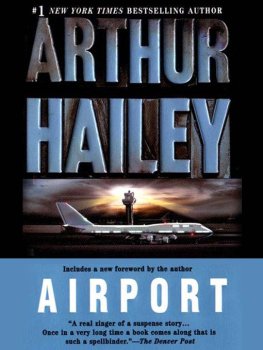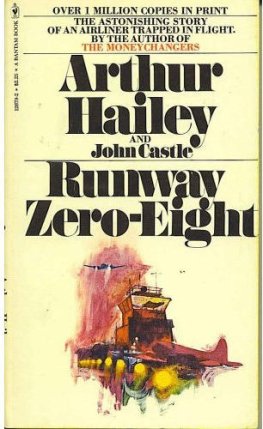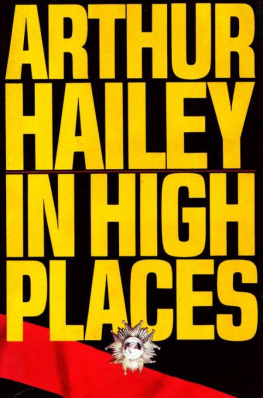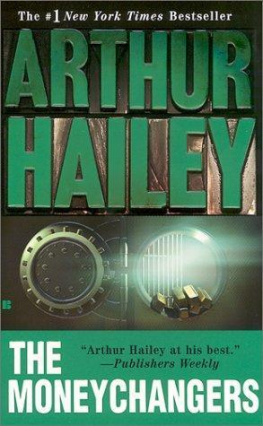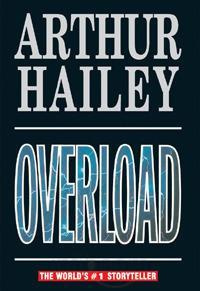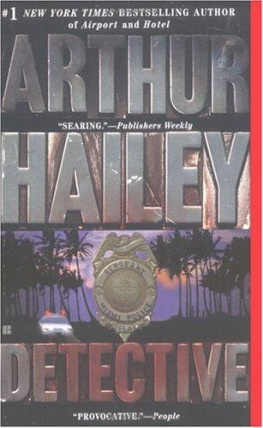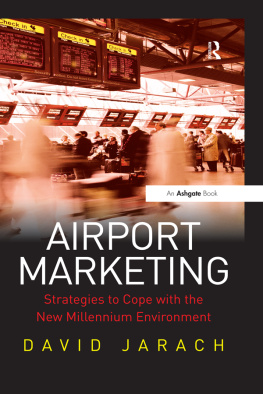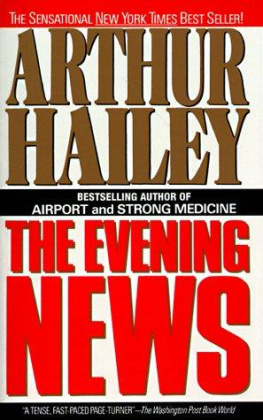Arthur Hailey - Airport
Here you can read online Arthur Hailey - Airport full text of the book (entire story) in english for free. Download pdf and epub, get meaning, cover and reviews about this ebook. genre: Prose. Description of the work, (preface) as well as reviews are available. Best literature library LitArk.com created for fans of good reading and offers a wide selection of genres:
Romance novel
Science fiction
Adventure
Detective
Science
History
Home and family
Prose
Art
Politics
Computer
Non-fiction
Religion
Business
Children
Humor
Choose a favorite category and find really read worthwhile books. Enjoy immersion in the world of imagination, feel the emotions of the characters or learn something new for yourself, make an fascinating discovery.
- Book:Airport
- Author:
- Genre:
- Rating:5 / 5
- Favourites:Add to favourites
- Your mark:
- 100
- 1
- 2
- 3
- 4
- 5
Airport: summary, description and annotation
We offer to read an annotation, description, summary or preface (depends on what the author of the book "Airport" wrote himself). If you haven't found the necessary information about the book — write in the comments, we will try to find it.
Airport — read online for free the complete book (whole text) full work
Below is the text of the book, divided by pages. System saving the place of the last page read, allows you to conveniently read the book "Airport" online for free, without having to search again every time where you left off. Put a bookmark, and you can go to the page where you finished reading at any time.
Font size:
Interval:
Bookmark:
Airport
By Arthur Hailey
Oh! I have slipped the surly bonds of earth
And danced the skies on laughter-silvered wings
from High Flight by John Gillespie Magee, Jr. (19221941) sometime Flight Lieutenant, Royal Canadian Air ForceThis is a work of fiction. Names, characters, places, and incidents are either the product of the authors imagination or are used fictitiously, and any resemblance to actual persons, living or dead, business establishments, events or locales is entirely coincidental.
FOREWORDA Message to New ReadersSince I wrote Airport , first published in 1968, there have been changes in airlines and airport procedures, though surprisingly not all that many.
The most important change, which new readers of my story should understand, has been in passenger security. In 1968 and for several years beyond, airport precautions involving passengers were virtually nonexistent. At that time, for example, any person could enter an airport and walk without hindrance or questioning to an airline departure gate. As for passengers, they simply showed their tickets, walked aboard, and that was that. In fact, no one had a right to question or delay a ticketed passenger a basic factor in Airport s plot.
I mention this here because theres a whole generation of air travelers who have grown up accepting as normal their passage through metal-detecting machines, having hand baggage searched, sometimes their main baggage questioned. Emphasis today is on security, security! There are even passengers who assume its always been that way, though of course it hasnt, and looking back its a high price the majority of us have paid for protection from extremists and lunatics. Alas, it has all been necessary, as are even more complex measures in the future.
As to the airplanes in Airport , most are jets, though their vintage is not significant. Much of the storys action takes place aboard a Boeing 707-320B, and at this writing (2000) only a few 707s are still in use on minor routes, usually hauling freight. But none of that matters. Whats described in the pages following could just as well have taken place on a latter-day Boeing 777 or Airbus A320. Read on! Youll see.
One final thing. Two important story characters Lieutenant Ned Ordway, the airports police chief, and Perry Yount, an air traffic supervisor were each referred to in the 1968 edition as a negro. At that time the description was normal, acceptable and inoffensive and, with millions of book copies in forty languages, I have not received a single complaint. However, I concede that more recently the label negro has become offensive, and therefore is not repeated in this new edition. Instead I have used African-American, a phrase seeming to enjoy wide favor.
But please, dear readers, do not write to me pointing out that African-American came into general usage far later than 1968. I know that. But I prefer to be respectful of minorities, as I have in other novels, rather than pedantically exact.
And, oh yes, thanks for buying this book.

PART ONE
1
At half-past six on a Friday evening in January, Lincoln International Airport, Illinois, was functioning, though with difficulty.
The airport was reeling as was the entire Midwestern United States from the meanest, roughest winter storm in half a dozen years. The storm had lasted three days. Now, like pustules on a battered, weakened body, trouble spots were erupting steadily.
A United Air Lines food truck, loaded with two hundred dinners, was lost and presumably snowbound somewhere on the airport perimeter. A search for the truck in driving snow and darkness had so far failed to locate either the missing vehicle or its driver.
Uniteds Flight 111 a non-stop DC-8 for Los Angeles, which the food truck was to service was already several hours behind schedule. The food snafu would make it later still. Similar delays, for varying reasons, were affecting at least a hundred flights of twenty other airlines using Lincoln International.
Out on the airfield, runway three zero was out of use, blocked by an Areo-Mexican jet a Boeing 707 its wheels deeply mired in waterlogged ground beneath snow, near the runways edge. Two hours of intensive effort had failed to get the big jet moved. Now, Areo-Mexican, having exhausted its own local resources, had appealed to TWA for help.
Air Traffic Control, hampered by the loss of runway three zero, had instituted flow control procedures, limiting the volume of incoming traffic from adjoining air route centers at Minneapolis, Cleveland, Kansas City, Indianapolis, and Denver. Despite this, twenty incoming flights were stacked up overhead, and orbiting, some nearing low fuel limits. On the ground, twice that number were readying for takeoff. But until the backlog of flights in the air could be reduced, ATC had ordered further delays of outbound traffic. Meanwhile, terminal gates, taxiways, and ground holding areas were increasingly crammed with waiting aircraft, many with engines running.
Air freight warehouses of all airlines were stacked to their palletized limits with shipments, their usual high speed transit impeded by the storm. Freight supervisors were nervously watching perishables hothouse flowers from Wyoming for New England; a ton of Pennsylvania cheese for Anchorage, Alaska; frozen peas for Iceland; live lobsters trans-shipped from the east for a polar route flight destination Europe. The lobsters were for tomorrows menus in Edinburgh and Paris where they would be billed as fresh local seafood, and American tourists would order them unknowingly. Storm or not, contracts decreed that air freight perishables must arrive at destination fresh, and swiftly.
Causing special anxiety in American Airlines Freight was a shipment of several thousand turkey poults, hatched in incubators only hours earlier. The precise hatching-shipping schedule like a complex order of battle was set up weeks ago, before the turkey eggs were laid. It called for delivery of the live birds on the West Coast within forty-eight hours of birth, the limit of the tiny creatures existence without their first food or water. Normally, the arrangement provided a near-hundred percent survival. Significant also if the poults were fed en route, they would stink, and so would the airplane conveying them, for days afterward. Already the poults schedule was out of joint by several hours. But an airplane had been diverted from passenger to freight service, and tonight the fledgling turkeys would have priority over everything else traveling, human VIPs included.
In the main passenger terminal, chaos predominated. Terminal waiting areas were jammed with thousands of passengers from delayed or canceled flights. Baggage, in piles, was everywhere. The vast main concourse had the combined appearance of a football scrimmage and Christmas Eve at Macys.
High on the terminal roof, the airports immodest slogan, LINCOLN INTERNATIONAL AVIATION CROSSROADS OF THE WORLD, was entirely obscured by drifting snow.
The wonder was, Mel Bakersfeld reflected, that anything was continuing to operate at all.
Mel, airport general manager lean, rangy, and a powerhouse of disciplined energy was standing by the Snow Control Desk, high in the control tower. He peered out into the darkness. Normally, from this glass-walled room, the entire airport complex runways, taxi strips, terminals, traffic of the ground and air was visible like neatly aligned building blocks and models, even at night their shapes and movements well defined by lights. Only one loftier view existed that of Air Traffic Control which occupied the two floors above.
Font size:
Interval:
Bookmark:
Similar books «Airport»
Look at similar books to Airport. We have selected literature similar in name and meaning in the hope of providing readers with more options to find new, interesting, not yet read works.
Discussion, reviews of the book Airport and just readers' own opinions. Leave your comments, write what you think about the work, its meaning or the main characters. Specify what exactly you liked and what you didn't like, and why you think so.

